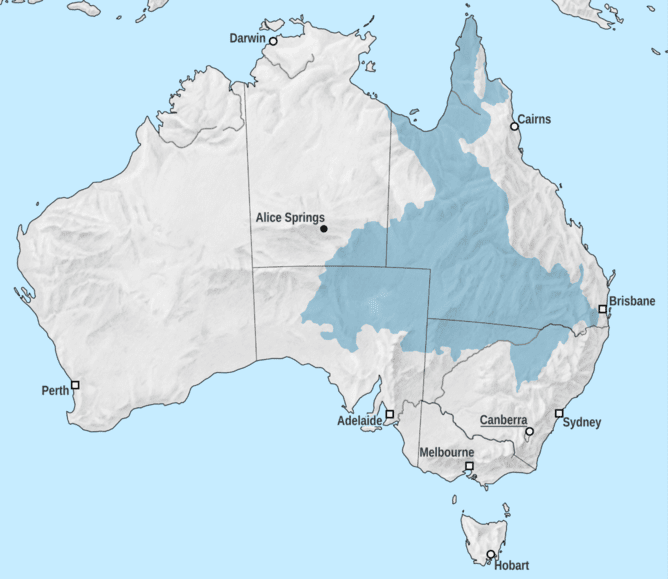QUEENSLAND’S peak farm lobby group AgForce says at least a dozen similar projects are coming in behind Glencore’s proposed carbon capture project on the Great Artesian Basin.
Yesterday, the Federal Court in Brisbane held the first hearing of AgForce’s legal action against a Federal Government decision to green light the project in 2022 when the Coalition was in power. The next hearing is scheduled for August.
Glencore subsidiary Carbon Transport and Storage Corporation is planning to take waste CO2 from its Millmerran Power Station and pump it into the Precipice Sandstone Aquifer of the GAB.
The plan has drawn widespread concern from the agricultural industry, who are worried the project will damage its main water source. Dozens of agricultural representatives and politicians were in Brisbane for yesterday’s hearing.
The legal action is aimed at the office of the Federal environment minister, who has been standing by the 2022 decision that declared the project was not a matter of national environmental significance. AgForce argues that as the GAB stretches over multiple states, it is clearly of national significance.
Chief executive officer Michael Guerin said the Glencore project was a precedent to a wave of similar projects.
“There are at least a dozen similar projects, that we know of, coming in behind Glencore,” he told Beef Central.
Glencore is standing by the project and says it is based off robust fieldwork, data and analysis including from the CSIRO.
Where to now for the project?
The CTSCo proposal still has hoops to jump through before it gets approval, with the Queensland Government to make a ruling on its Environmental Impact Statement in May.
Beef Central understands that if the project is approved by the State Government, Glencore could start work before the August court date.
While many are doubting the project will get underway so quickly, Glencore was asked about its plans if it is approved.
“In the event the Queensland Department of Environment, Science and Innovation approves the EIS, we would move toward a Final Investment Decision,” a spokesperson said.
If the project is denied by the State Government, Mr Guerin said the legal action will still proceed as the organisation firmly believes that it should be a Federal matter.
Glencore’s proposal is also facing a Senate Inquiry, which was introduced by One Nation senator Pauline Hanson. It is currently calling for submissions and has a report due by May 1, with terms of reference at the bottom of this article.
Why is Glencore proposing the project?
The proposed carbon capture project is aiming to generate carbon credits, that Glencore can either use to meet its own legislative requirements or sell to other facilities.
Carbon capture and storage are being canvassed across the world and it is a recognised methodology in Australia’s carbon crediting system.
According to the project register, one CCS project is already up and running. Beef Central understands Santos is the proponent and Australian Carbon Credit Units have been issued yet. It is unclear where Santos is dumping the waste.
Well-known agricultural consultant and soil carbon service provider Terry McCosker last month said he had been speaking to big emitting companies about buying some soil carbon credits he had generated with his clients.
He said they were telling him the current legislative requirements are likely to put them out of business and described plans like carbon capture in the GAB as an unintended consequence of tough emissions legislation.
Senate Inquiry terms of reference
- The environmental impact assessment process and the adequacy of the project’s approval by federal and state regulatory bodies, including the decision not to classify the project as a controlled action under national environment law;
- The potential risks and impacts of the project on the groundwater quality within the Great Artesian Basin, especially concerning the findings related to the dification of groundwater and mobilisation of heavy metals such as lead and arsenic;
- The scientific basis and transparency of the data supporting the project’s safety claims, including the robustness of fieldwork, data, and analysis presented by CTSCo and critiques by independent hydrogeologists and aqueous geochemists;
- The potential socioeconomic impacts on agriculture and regional communities, relying on the Great Artesian Basin for water, including an assessment of the project’s impact on existing and future water use rights;
- The consultation processes undertaken with stakeholders, including farmers, Indigenous landholders, environmental groups, and the broader public, and the adequacy of these processes in addressing stakeholder concerns;
- The potential precedent set by allowing CCS projects within the Great Artesian Basin and its implications for future projects, considering Australia’s strategic interests in preserving its largest groundwater system;
- The role of CCS technology in Australia’s broader climate change mitigation strategy, including an evaluation of its efficacy, risks and alternatives; and
- Any other related matters.




HAVE YOUR SAY